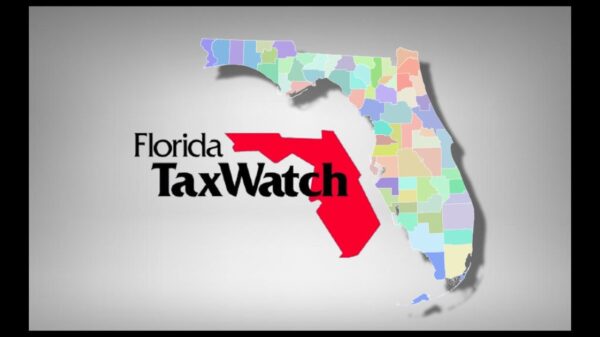Guest Op-Ed by Juan Londoño
Last week, Rep. Blanco (R) of the Florida House of Representatives introduced HB 945, a bill that would reintroduce the cost-of-living adjustment (COLA) mechanism back to the pensions under the Florida Retirement System (FRS). After being eliminated in 2011, the reintroduction of the COLA would mean that pensions would undergo an annual adjustment of benefit distributions, so that benefits are constantly adjusted to match any sort of increases in cost-of-living expenses. While a well-intentioned effort, the reintroduction of the COLA would significantly set back the efforts to bring back the FRS to fiscal sustainability.
For years, the FRS has stared at a harsh reality: it lacks the necessary funding to fulfill its commitment to future retirees. From retirees to non-beneficiary taxpayers, this is the news that everyone involved hates to hear, as it usually translates into various monetary sacrifices to get the fund back on track. Correcting inter-generational funding gaps usually involves an all-hands-on-deck effort and usually involves a mix of benefit reductions, tax increases, or discretionary spending cuts. No one is left unscathed.
Florida policymakers made the decision to remove the COLA of the FRS in 2011. Instead of opting for a more aggressive benefits reduction, policymakers decided to freeze distributions to slow the growth of the fund’s costs. While it was a helpful measure, the FRS is still staring at a $42 billion funding shortfallfor its promised benefits.
Bringing back the COLA to a financially strained system means that while beneficiaries would see increased distributions, it will likely be at an expense of taxpayers, reductions in government services, or incurring more public debt. It would just mean that policymakers are kicking the can down the road and shifting the financial burden of a poorly designed pension system to a specific group. In a situation where all groups should be chipping and sacrificing to steady the ship, such a measure would be a slap in the face into those groups that have put in the effort.
But aside from shifting the financial burden away to taxpayers, the COLA restitution could spark a debt spiral on the public treasury of the state and make the state budget more fragile against economic downturns. By reintroducing the COLA, the state will be forced to update distributions whenever there areinflationary spikes, such as the one the country faced in theyears after the pandemic. Thus, sudden increases in cost-of-living expenses will translate into higher rates of spending and debt by the state. This logic contravenes the common economic wisdom regarding public spending during inflationary spirals: normally, governments ought to tighten spending and avoidincurring in more debt in order to prevent more dollars frombeing injected into the economy, countering inflation. COLAs, however, would do the exact opposite, and would further accelerate inflationary pressures. Additionally, in cases the economy slows down and tax revenue decreases, the state would also likely need to gather on more debt to fund any increases caused by the COLA, which would become automatic, inflexible spending. The state finances then would face a double hit from both reduced revenues and forced increases in debt.
The theoretical premise behind COLAs is a well-intentioned one: provide a safeguard against inflation spikes for retirees who face more difficulties to find additional sources of income. However, in practice, COLAs are extremely onerous and can quickly upend the financial viability of a pension system. And when these systems face funding challenges, it is taxpayers and non-beneficiaries who are left footing the bill. More often than not, those individuals left on the hook for these adjustments do not have access to these benefits on their retirement plans. 401kand other sorts of retirement plans do not usually provide any sort of COLA. Rather than leveling the playing field, taxpayers would be burdened with paying for a privilege they do not enjoy themselves. Passing HB 945 would be a misguided effort that would ultimately put Florida taxpayers at risk to disproportionately benefit a handful of beneficiaries.
Juan Londoño is the Chief Regulatory Analyst at the Taxpayers Protection Alliance





















